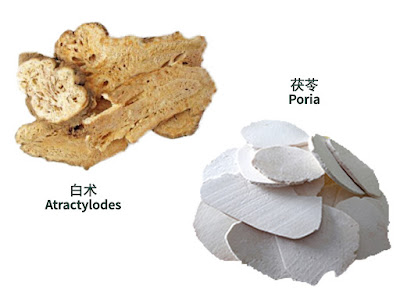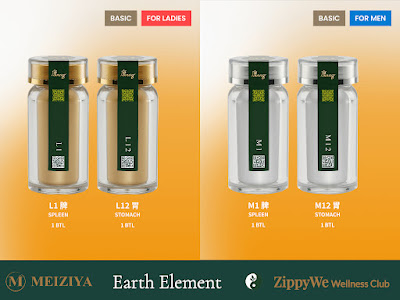Understanding Uric Acid in Midlife: A TCM Approach to Complement Modern Medicine
As we enter midlife, typically between the ages of 40 and 65, many of us begin to notice subtle shifts in energy, metabolism, and recovery. One common but often underestimated issue that emerges during this time is the gradual rise of uric acid levels. While it may begin silently, elevated uric acid can contribute to conditions like gout, joint inflammation, kidney strain, and even cardiovascular stress if not managed well.
Modern medicine plays a crucial role in diagnosing and managing high uric acid. At the same time, Traditional Chinese Medicine (TCM) offers a complementary perspective, one that sees uric acid imbalance not merely as a chemical problem, but as a signal of deeper systemic disharmony. This insight opens the door to more sustainable, whole-body healing.
Why Uric Acid Rises in Midlife
Uric acid is a natural byproduct of the body's breakdown of purines —compounds founds in certain foods and generated internally. Normally, it dissolves in the blood and is excreted by the kidneys. Trouble begins when too much uric acid is produced or when the kidneys are unable to eliminate it efficiently.
Several midlife changes contribute to this:
- ♂ In men, testosterone levels decline, subtly affecting kidney filtration and metabolic.
- ♀ In women, estrogen —important for uric acid excretion — drops after menopause, increasing their risk of buildup.
Add to this modern habits such as high-protein diets, processed foods, alcohol, sugary drinks, stress, and sedentary lifestyles, and the risk for hyperuricemia (elevated uric acid) increases sharply. Left unchecked, this may lead to painful gout flare-up or chronic inflammation.
What Contemporary Medicine Offers - And How TCM Adds Value
Conventional medicine offers effective medications to manage uric acid levels:
- Allopurinol—reduces uric acid production
- Probenecid—enhances uric acid excretion
- Colchicine or NSAIDS—relieve pain and inflammation during gout attacks
These treatments are useful for managing acute symptoms. However, they primarily address biochemical imbalances without tackling the root causes behind them.
This is where TCM provides a valuable extension. Rather than viewing uric acid as the core issue, TCM sees it as a manifestation of internal disharmony, and guides treatment toward restoring the balance that allows the body to regulate uric acid naturally.
A TCM View: Uric Acid as a Signal, Not the Root Cause
In TCM, gout and uric acid-related issues fall under the category of "Bi Syndrome"—a condition of painful blockage due to stagnation of qi and blood in the meridians.
Common TCM diagnostic patterns include:
💥Damp-Heat Accumulation: Triggered by heavy, greasy foods, alcohol, emotional stress, or weak digestion. Damp-heat tends to lodge in the joints.
💥Phlegm and Turbidity: Improper transformation of fluids leads to buildup of metabolic waste, known in TCM as "Turbid phlegm," which may form uric acid crystals.
💥Qi and Blood Stagnation: Aging or prolonged stress slows circulation and reduces the body's ability to remove waste.
💥Spleen and Kidney Deficiency: The spleen governs digestion and fluid transformation, while the kidneys manage waste elimination. Weakness in these organs allows dampness and toxins to accumulate.
Instead of suppressing symptoms, TCM addresses these foundational imbalances, helping the body naturally restore uric acid regulation and overall resilience.
How TCM Supports Uric Acid Balance
1. Customized Herbal Formulas
Herbal prescriptions are tailored to your constitution and diagnostic pattern. Common principles include:
Clearing Damp-Heat
🍃 Astragalus (Huang Qin): Strengthens qi and supports inflammation recovery.🍃 Gentian (Long Dan Cao): Clears heat and drains dampness from the liver and gallbladder.
Strengthening the Spleen
🍃 Poria (Fu Ling): Promotes urination and calms the mind.
Supporting Kidney Function
🍃 Achyranthes (Niu Xi): Strengthens the liver and kidneys, supports joint health.
Invigorating Blood Flow
🍃 Ligusticum (Chuan Xiong): Moves qi and blood, eases gout-related discomfort.
2. Acupuncture Therapy
Acupuncture targets specific meridian points to:
- Relieve joint pain and inflammation
- Improve kidneys and spleen function
- Support circulation and detoxification
- Regulate emotional stress that may worsen symptoms
Consistent acupuncture sessions help maintain internal balance and prevent flar-ups.
3. TCM Food Therapy
Instead of simply cutting out purines, TCM dietary advice focuses on restoring digestive harmony:
- Favor warm, easy-to-digest meals like congee, steamed vegetables, light broths.
- Avoid raw, cold, greasy, or spicy foods
- Limit alcohol, refined sugar, and heavy red meat
- Use gentle herbal teas like ginger, hawthorn, and Coix seed to support digestion and fluid metabolism.
By strengthening digestive system, it improves the body's ability to transform nutrients and eliminate uric acid naturally.
4. Movement and Lifestyle Alignment
Qi-moving practices help prevent stagnation and support detox:
👉 Prioritize sleep and manage stress: Essential for liver and kidney recovery
Together, these habits promote healthy circulation.
TCM in Action: The Meiziya Reborn 123+
At ZippyWe Wellness Club, we have seamlessly integrated TCM into a modern wellness solution through the Meiziya Reborn 123+, a line of herbal supplements grounded in the principle of 12-Meridian Regulation.
The Meiziya Reborn 123+ supports:
🌿 Deep, restorative sleep—a key window for liver and kidney detox
🌿 Healthy liver and kidney function—vital for uric acid processing
🌿 Smooth qi and blood circulation—reducing blockages and inflammation
To complement this,
🌿 The Earth series supports spleen and digestion,
🌿 The Water series targets kidney and bladder wellness—together promoting balanced fluid and waste metabolism.
This modern TCM solution delivers ancient wisdom in a convenient, daily form.
Conclusion: A Holistic Approach to Midlife Wellness
Rising uric acid in midlife isn't just a chemical imbalance—it's your body's call for deeper support. While contemporary medicine excels at managing acute symptoms, long-term wellness comes from an integrated approach that treats the roots, not just the branches.
TCM invites us to view health as a dynamic balance of interconnected systems. When one organ is strained, others are inevitably impacted. By supporting digestion, circulation, and organ function, we empower the body to heal and regulate itself, naturally and sustainably.
If you are seeking solutions that honor your body's innate intelligence, integrating modern insights with time-tested TCM wisdom can pave the way to deeper, lasting healing.
📩 If you need more detailed advice or have other health concerns, feel free to reach out, I'll be happy to provide more comprehensive guidance!












Comments
Post a Comment